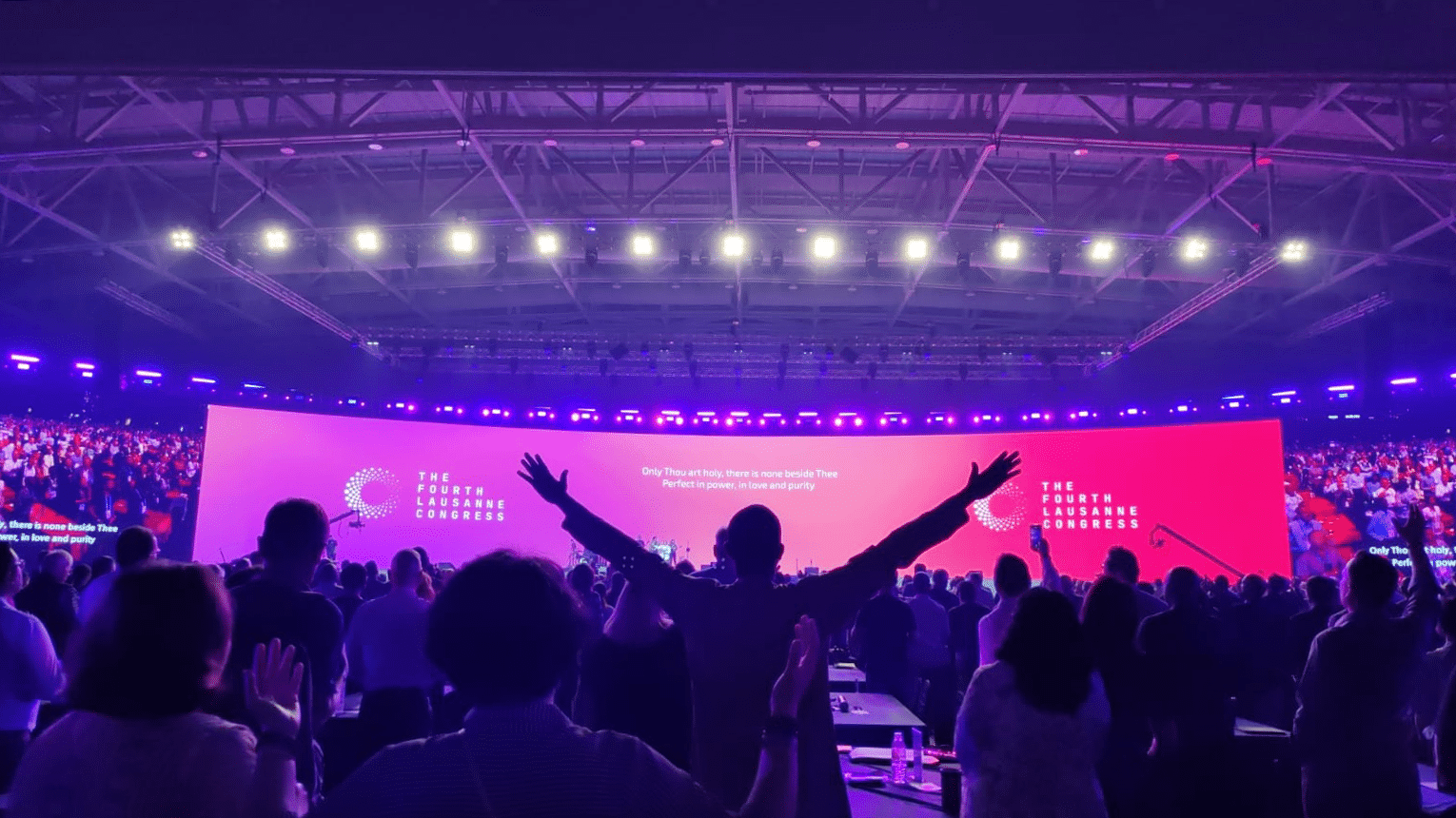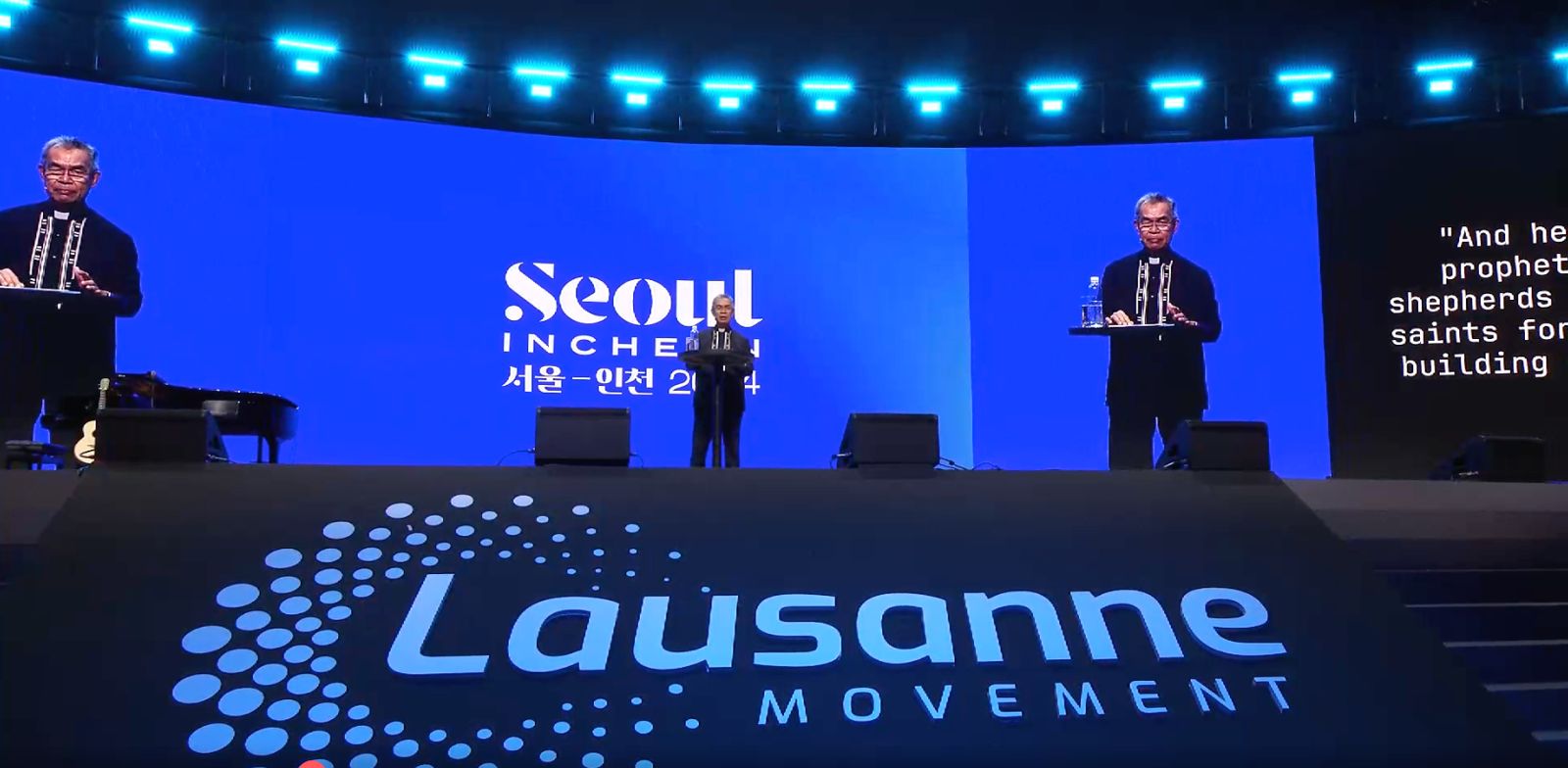7 key paths forward for the global Church: 4th Lausanne Congress’ Seoul Statement
Pastor Edric Sng // September 24, 2024, 1:06 pm
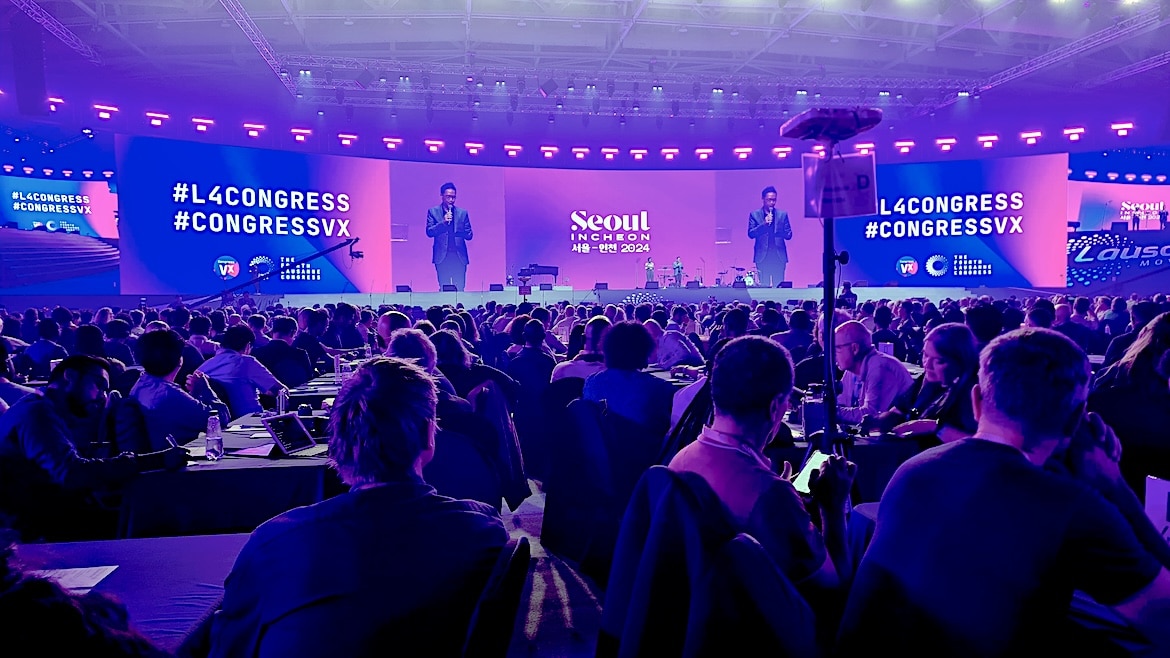
The 4th Lausanne Congress kicked off in Seoul, South Korea on Sunday, September 22. Photo by Jonathan Huang, Wesley Methodist Church.
The start of the fourth Lausanne Congress was marked with the release of the Seoul Statement, meant to give the global church “a sense of clarity in a world of theological and missional confusion”.
“The task of evangelisation remains urgent as billions remain outside the reach of the message of God’s love and grace in Christ,” read the Statement.
The fourth Lausanne Congress, which started on Sunday, September 22, 2024 in South Korea, marks the 50th anniversary of a movement committed to global mission.
With 5,000 attendees from over 200 nations, this is the largest global gathering of evangelical leaders in history.
With more than 5,000 registered attendees, from more than 200 nations and territories, this is the largest global gathering of evangelical leaders in history.
Among these are over 100 Singaporean delegates, our country’s largest delegation to a Lausanne Congress to date.
The First Lausanne Congress in 1974 – which started with the late evangelist Billy Graham’s vision to bring together Christian leaders together for the task of evangelism – produced the Lausanne Covenant, which carried the shared conviction that “the whole church must take the whole gospel to the whole world”.
Each subsequent Congress has built on the need for unity in evangelism, producing the Manila Manifesto (1989) and the Cape Town Commitment (2010). Among the key concepts introduced were that of the 10/40 Window, evangelism in megacities and diaspora, and in cultures without established written languages.
The Seoul Statement focuses on seven biblical and theological “gaps”, authors E D Burns, Michael Oh, David Bennett and Ivor Poobalan said – areas that the previous Lausanne foundational documents “had not given sufficient attention”.
“The seven themes identified in the Seoul Statement should produce a sense of clarity in a world of theological and missional confusion—that Christian convictions are rooted in the Scripture and in two millennia of Christian tradition; that we can confidently know what is central to ‘the gospel’ and be able to distinguish what is peripheral and what is false; that we will be equally committed to the declaration of the faith (evangelism) and the defence of the faith (discipleship and pastoral care) as the twin responsibilities of being the global church,” they wrote.
7 KEY EMPHASES OF THE SEOUL STATEMENT
1. THE GOSPEL MUST BE PROCLAIMED
The Seoul Statement begins by reiterating the reason the church exists – the proclaim the Gospel of good news, that Jesus died and rose again, offering salvation and redemption to all who will call on His name.
“For the Church to flourish in the coming decades, we must form ourselves into faithful Bible reading and listening communities.”
In this way, “God’s people will care for God’s world in a community of blessing with God at the centre as the source of all that is good”, said the Statement.
“By faith, we take our place within Christ’s Church, the one people of the one God, the people of peoples of the triune God. By faith, the church becomes the dwelling of God in Christ through his Spirit, and he, our never-ending source of life. By faith, we live under and for God’s reign.
“As we gather in local churches, we live, rehearse, and remember the Gospel, the true story of everything. Through our presence, our practice, and our proclamation we tell the story of the Gospel to the ends of the earth.”
2. THE BIBLE MUST BE READ AND OBEYED
The Church and our worldviews as believers must be centred upon the Scripture, the reading of which must centre upon the Gospel, the authors wrote.
“We affirm that the central message of Scripture is the Gospel of the kingdom of God, the proclamation of Jesus’ incarnation, death, resurrection, ascension, and return, which is the fulfilment of God’s promise to bless all peoples through the seed of Abraham. Therefore, we read the whole of Scripture in accordance with and guided by this Gospel.”
To read and interpret the Bible faithfully, the church must read it in its historical, literary and canonical contexts, the Statement added.
“We call local churches to devote themselves to the public reading of Scripture and to form faithful Bible readers and listeners, as individuals, groups and worshipping communities. In forming such cultures, we must allow the word of God and the Gospel it proclaims to shape our worldview and lives.
“For the church to flourish in the coming decades, we must form ourselves into faithful Bible reading and listening communities that faithfully declare and display in many ways and places the one lordship of Christ.”
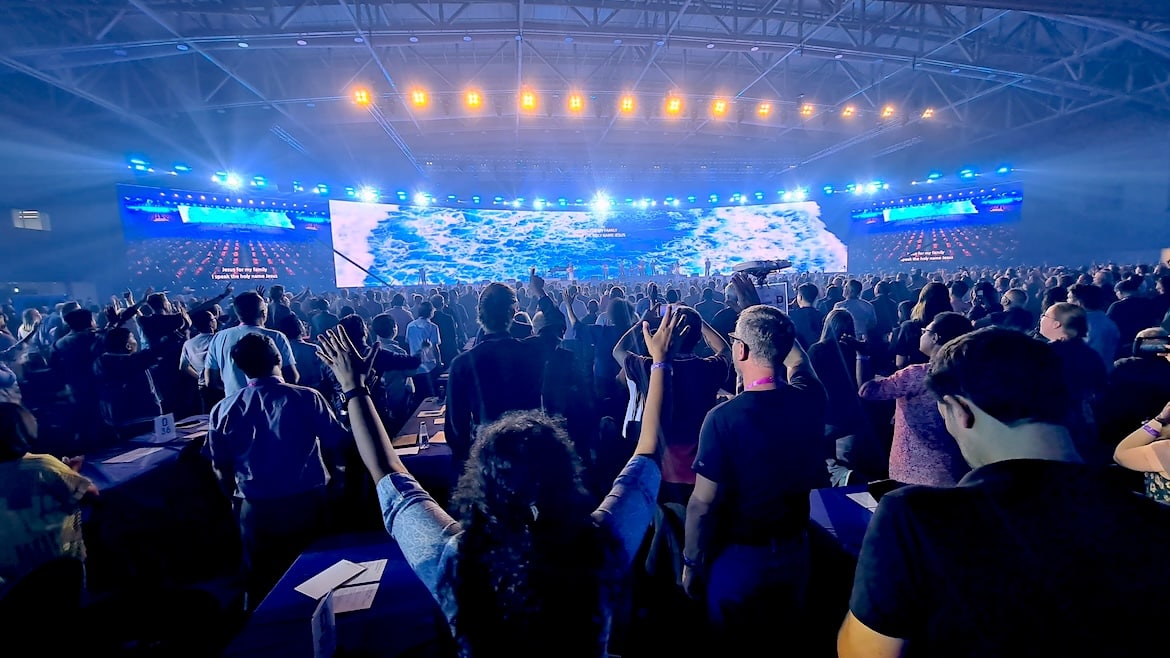
“The Lord Jesus summons his church to gather together regularly to worship God the Father through the Son by the Holy Spirit,” the authors remind the Church. Photo by Jonathan Huang, Wesley Methodist Church.
3. THE CHURCH MUST GATHER TO WORSHIP
To remain true to God’s intended mission, the church must gather in corporate worship and rediscover uncompromised Biblical bearings, according to the authors of the Seoul Statement.
“The doctrine of the church has received little attention during these decades of extraordinary Christian expansion in the world.”
“We recognise that the doctrine of the church has received little attention during these decades of extraordinary Christian expansion in the world, and there is little consensus about what the church is, its importance in the life of the Christian, and its relevance to our world,” the authors of the Statement noted.
“The resulting confusion has opened the way for aberrant forms of church that distort the values of Christ and his Gospel. It has also increased disillusionment among baptised believers, leading them to distance themselves from the formal or institutional church.
“Christians today, especially first-generation believers, need a more comprehensive biblical understanding of the church—one that can inspire in them deep appreciation and loyalty.”
Key to church is the concept of corporate worship, the authors noted.
“The Lord Jesus summons his church to gather together regularly to worship God the Father through the Son by the Holy Spirit. By these gatherings, he invites us to grow in our intimacy and knowledge of him as the Scriptures are read and proclaimed, and to see, feel and taste his grace, in Baptism and the Lord’s Supper (Acts 2:42).
“We call upon all Christians to submit to the authority of a local church.”
“As the one body of Christ and one temple of the Spirit, the church manifests its corporate identity primarily through its worship. In corporate worship, we are practising church and showing what it means to be the church.”
The Statement called on all churches “to give greater attention to worship as a foundational practice and to make worship a more corporate experience through their preaching, prayers, and songs”.
Said the Statement: “Properly ordered worship takes place under the authority and discipline of the local church. This is vital for the well-being of not only the individual believer but of the church as a whole. So, we call upon all Christians to submit to the authority of a local church.”
4. GOD’S DESIGN FOR MAN AND WOMAN MUST BE HONOURED
The Seoul Statement affirmed that according to God’s design, marriage is a unique and exclusive covenant-relationship between one man and one woman.
The authors further noted that:
- Strong Christian marriages and parenting are important means of Gospel witness
- One of God’s key purposes of marriage is for procreation
- Sex should only take place within the bounds of marriage
- Both married and single believers can be equally complete in Christ
- Same-sex partnerships are not biblically valid marriages
- Christians with same-sex attraction have suffered discrimination and injustice from Christian communities
To read more, click here.
5. DISCIPLES MUST LIVE TRANSFORMED LIVES
As followers of Christ, we must understand that the proper aim of our mission does not stop at the proclamation, but also the transformation of those who hear and believe the Good News.
“Despite our claim to be followers of our crucified Lord, we have failed to live in keeping with the holy pattern of life.”
“Our mission is not simply one of announcing a message in order to secure professions of Christian faith. Rather, our evangelistic task is to announce the message of a crucified Messiah as we live lives that accord with that message with the aim of seeing others formed in this same pattern of life,” wrote the authors – noting that this transformation must first be seen in us as disciples.
“Despite our claim to be followers of our crucified Lord, we have often failed to live in keeping with the holy pattern of life he gave to us and to teach others to do the same,” wrote the authors, citing headlines of financial and sexual misconduct, abuse of power among leaders, and efforts to cover-up these failures.
“We grieve these failings; we lament our sin; we humbly repent and confess our profound need for the ongoing grace of the Gospel to produce in us the holiness without which no one will see the Lord (Heb 12:14).”
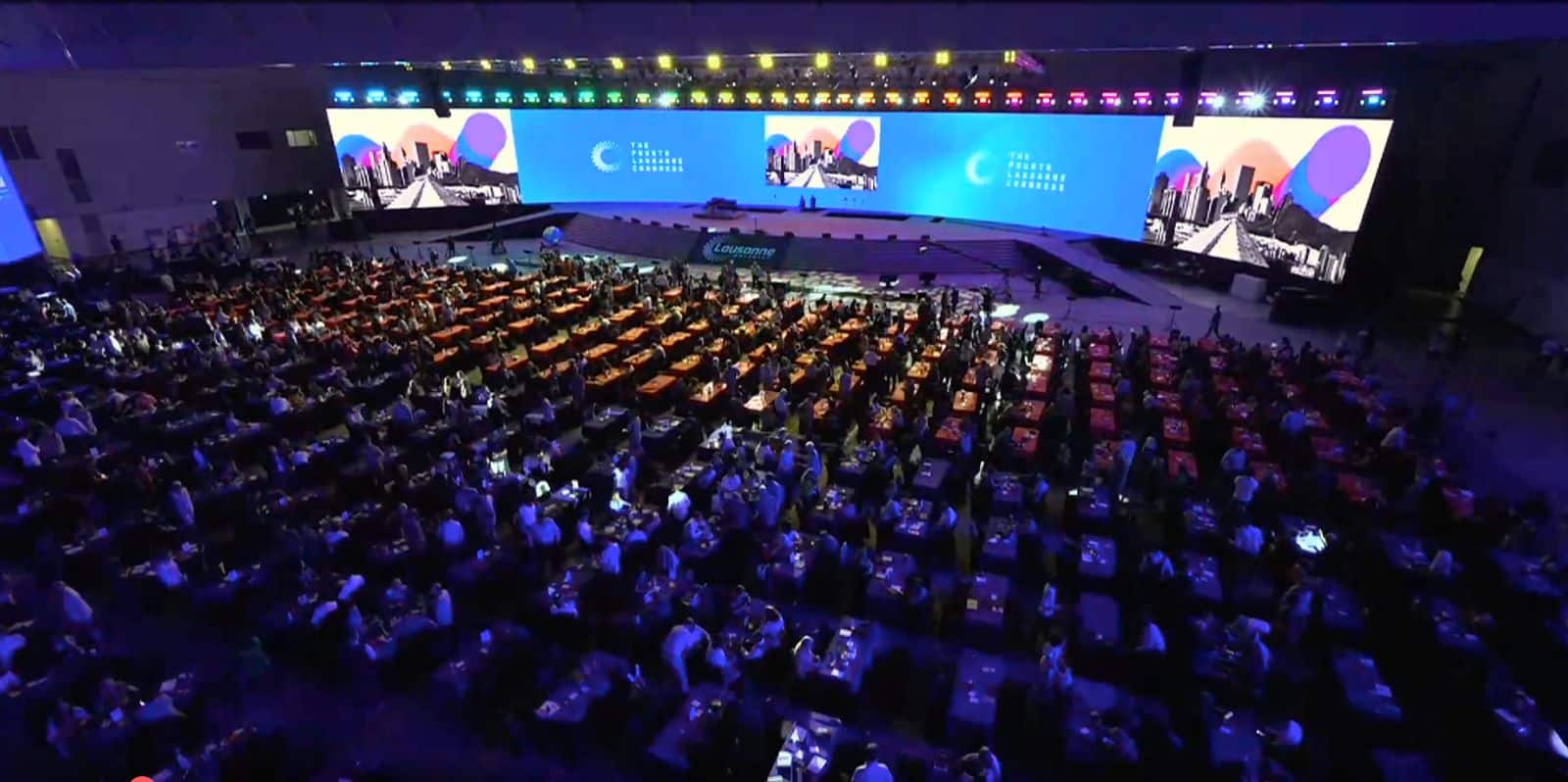
“We call ministry leaders and missionaries to remain in vital fellowship with and accountability to local churches,” the authors urge. Photo from Fourth Lausanne Congress livestream.
A key vehicle in strong discipleship is the role of the church. “Within the church, individual believers learn to conduct themselves as citizens of heaven who live lives worthy of that citizenship by mediating the grace conveyed to them by the Spirit to their fellow believers,” wrote the authors.
Accountability to the church is essential, they added, especially for those ministering beyond church walls.
“We call ministry leaders and missionaries to remain in vital fellowship with and accountability to local churches. We affirm the importance of these ministries but also the importance of maintaining a clear focus on and connection to the local church as the embodiment of the new humanity that God is forming in Christ,” said the Seoul Statement.
6. THE PEOPLE OF CHRIST MUST BE A PEOPLE OF PEACE
Christians must unite to provide relief and serve as peacemakers to the conflict zones around the world, wrote the authors of the Seoul Statement.
“Christians have remained silent in the face of atrocities rather than speaking with prophetic integrity and courage.”
Christians at various times in history have not only promoted violence and war, but also remained silent in the face of such atrocities rather than speaking with prophetic integrity and courage, they wrote, noting that this has shifted little since the Cape Town Commitment of 2010, which grieved the “complicity of Christians” and the “lamentable silence of the church” in such conflicts.
Citing conflict in Ukraine, Gaza, Syria, Myanmar, Sudan, and Ethiopia, the authors called on Christians worldwide to:
- Pool our resources and support the relief efforts of churches and humanitarian organisations that are situated near conflict zones.
- Serve as peacemakers by supporting negotiations aimed at ending conflicts
- Call for justice and reparation for the innocent victims of violence
- Work to correct theological errors that provide ideological justification for unjust violence against innocent civilians or seek to legitimise violations of international humanitarian law
- Intercede on behalf of those who face the horrors of war and conflict
- Pray for the persecuted church
“As Christ’s peacemakers, we must build Christian communities that exemplify the peace of Christ and promote a culture of peace as a crucial outworking of our faith in and proclamation of the gospel. In this way, we declare and display Christ together in a world deeply wounded by conflicts.”
7. THE CHURCH MUST FAITHFULLY STEWARD TECHNOLOGY
Technological advances can be used for the discipleship and evangelism – but first we must learn how to steward and master them, wrote the authors of the Seoul Statement.
“We delight that technology has extended the reach of the Gospel into many regions of the world.”
Many Christians, especially the younger generations, are addicted to social and digital media and are in effect being “discipled” by them because of the disproportionate amount of time spent using such technologies, they wrote.
The authors also sounded a note of caution on artificial intelligence (AI).
“The development of digital systems that appear to reason, behave, and act in ways that we would consider distinctly human raises questions regarding the uniqueness of human creativity and rationality. As innovation in artificial intelligence accelerates, we call for Christians, especially those who work in this industry, to engage both in the development and use of this technology that honours the Creator and human createdness by promoting safe, equitable, and dignifying applications,” they wrote.
Ultimately, though, with discerning usage, digital technology can be used for God’s glory, they added.
“We call Christians and churches to explore and adapt digital technologies for the worship of God, the bridging of divides, the shaping of Christ-honouring culture, and the work of Christian discipleship.
“We call all churches and leaders to engage technologies of the digital age for disciple-making. We call for faithful presence in digital spaces, faithful contextualisation through connected devices, faithful teaching of digital literacy, and faithful practice of hospitality for forming healthy usage habits.”
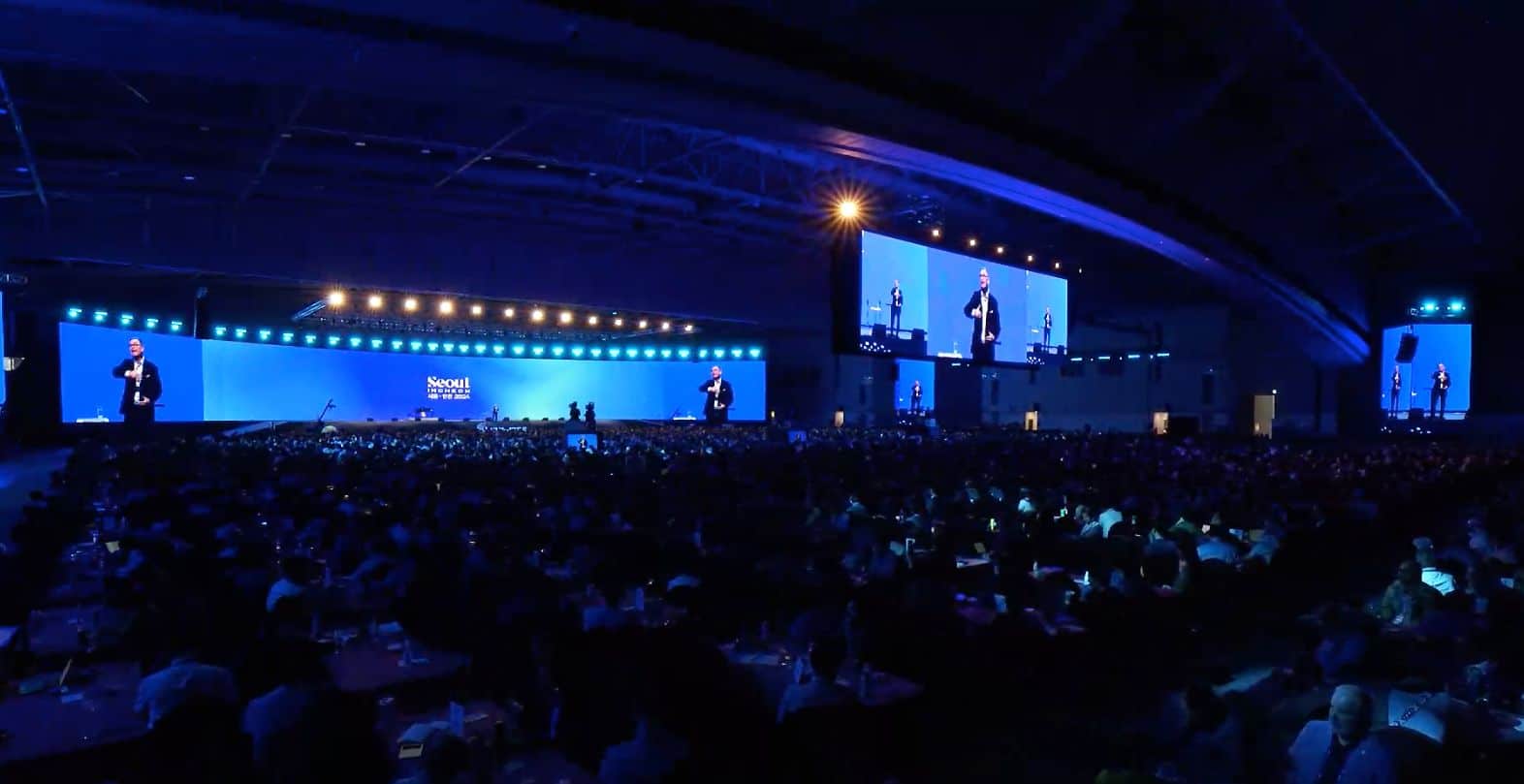
The authors call for Christians in this industry “to engage both in the development and use of this technology that honours the Creator and human createdness by promoting safe, equitable, and dignifying applications.” Image from Fourth Lausanne Congress livestream.
Such technology may play a key part to bringing the Gospel to the ends of the Earth, the authors added.
“We applaud the church’s evangelistic drive that has led to increasing technological adaptation and unprecedented opportunities for sharing the Gospel. We delight that technology has extended the reach of the Gospel into many regions of the world that have previously been inaccessible, hastened the work of Bible translation, and facilitated the movement and ministry of God’s people around the world.
“We pray that Gospel-motivated, faithful stewardship of technology will help a new generation to follow and bear witness to Christ in our increasingly technological world.”
We are an independent, non-profit organisation that relies on the generosity of our readers, such as yourself, to continue serving the kingdom. Every dollar donated goes directly back into our editorial coverage.
Would you consider partnering with us in our kingdom work by supporting us financially, either as a one-off donation, or a recurring pledge?
Support Salt&Light
